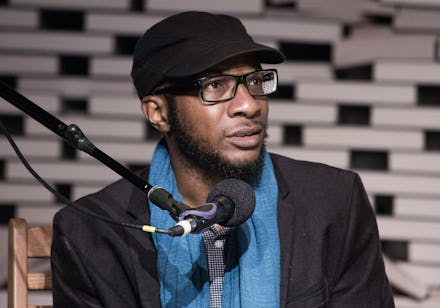The Twitter Feed Every Book Lover Needs to See

Nigerian-American novelist Teju Cole proved that social media is not just a means of self-promotion on Wednesday, when he converted his Twitter feed into a template for a short story.
After having remaining dormant for nearly three months on the Twittersphere, Cole unleashed a string of retweets from other writers, editors, bloggers, and media personalities that, when read together, formed a story about a man having a heart attack on a crowded subway.
Contributors included Buzzfeed Editor Ayesha Siddiqi, Slate columnist Mark O'Connell, and MSNBC host Chris Hayes, as well as up-and-coming bloggers who Cole follows on Twitter. The Verge and Slate have confirmed that Cole had solicited the tweets from these individuals in advance.
There is a brewing debate in the literary community as to whether or not Twitter is useful for writers. We've heard about the studies confirming that social media is making us narcissistic and distracting us from doing real work, and some authors have opted to abstain from social media completely.
Teju Cole has shown instead that social media is not inherently good or bad, but rather that the problem lies in how we choose to use it. Cole, who is also a prolific photographer and avid news reader, drew attention to his 2011 novel Open City, about Nigerian immigrants in New York City, by sharing a collection of news clips on his Twitter feed. Using these clips as conversation starters, he bounced ideas back and forth with other writers and readers without revealing too much of the plot for his upcoming novel.
This time, Cole has reinvented his approach once again in three unique ways. First, he's using social media as a canvas, illustrating a story itself instead of simply posting links to stories. His idea is to revive the art of writing by finding loopholes around the 140 character limit and mindless hashtags. This refreshing take shows how writers and other artsy-types can leverage online platforms to create rather than just promote art.
Second, by engaging with other writers and media personalities, Cole has cast a wide readership net. His compilation of retweets ensures that the Twitter followers of other contributors are being reached in addition to his own. This interactive strategy is especially helpful for up-and-coming writers seeking to connect with those more established and get their voices heard. Lastly, Cole is still drawing attention to himself and his work in a positive and unique way.
Cole's witty patchwork prose counters author and famed Twitter-hater Jonathan Franzen's claim that writing is not a "communal enterprise," as his endeavor shows how everyone can benefit from this kind of collaboration.